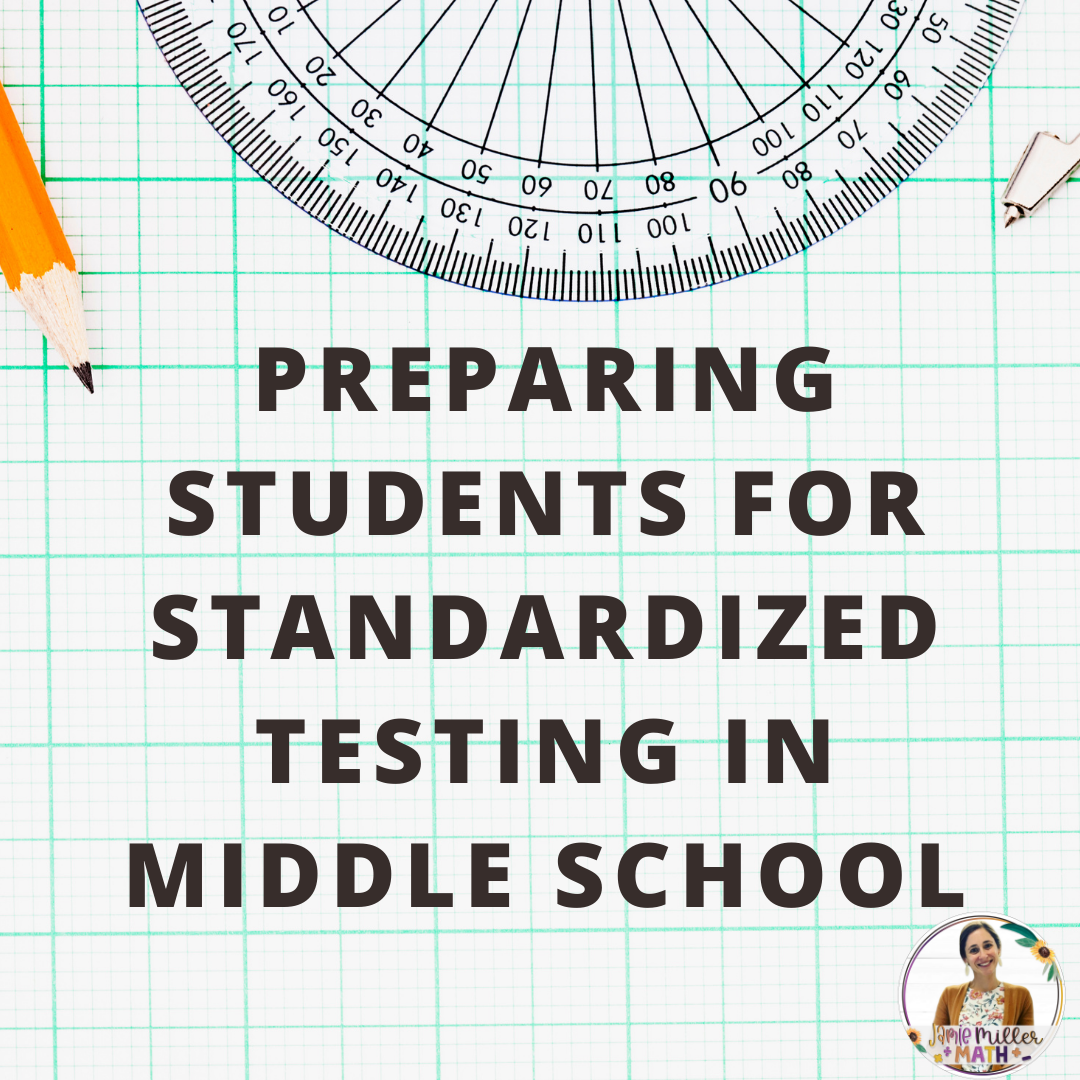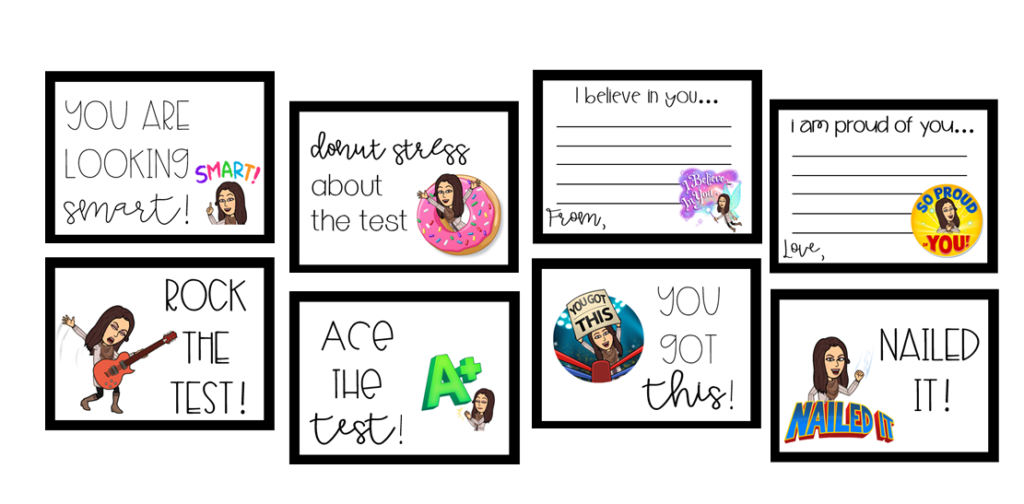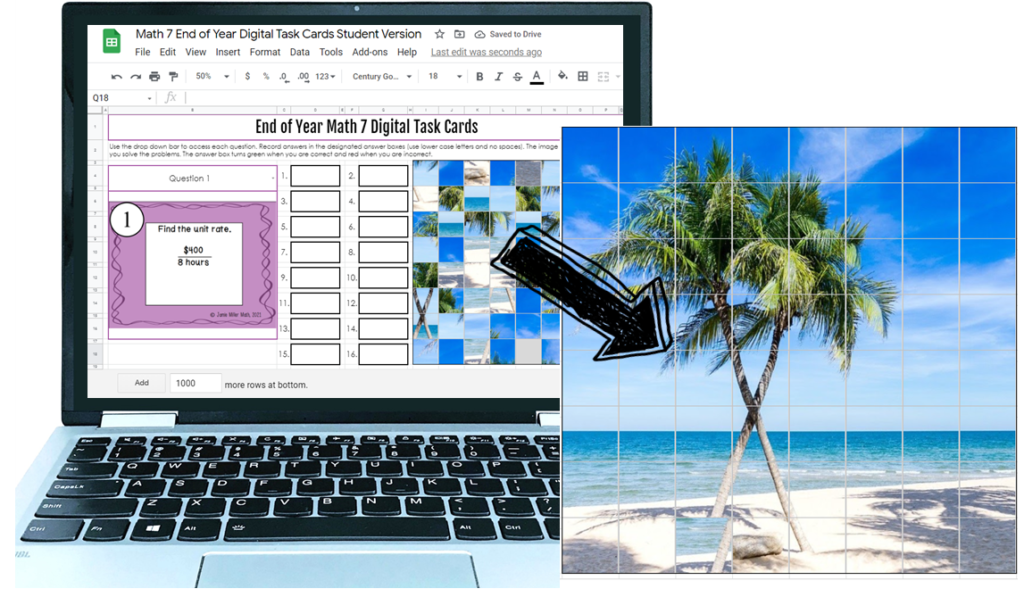
Preparing Students for Standardized Testing in Middle School
Standardized testing season can be stressful for students and teachers alike. As teachers, we want to see our students do their best. However, it is difficult to decide how much time you devote to preparing specifically for state testing. I firmly believe that we prepare students all year long but there are specific actions we can take in order to set our students up for success with high stakes testing.
Pumping up your students
- All year long, we pump up our students, praising them for their effort and hard work, creativity, problem-solving strategies, perseverance with difficult problems, etc. We also pump them up for performance tasks and assessments in our classroom so it’s important to likewise send students the message of encouragement before standardized tests. My favorite way of doing this is by making students goody bags with pencils, erasers, stickers, mints, and a note of encouragement.
- You could also pump up students with an assembly before kicking off standardized testing and a celebration once testing is done.

Engaging activities and lessons
- We use engaging activities to keep our students interested and motivated in math all year long. Similarly, we want to use engaging activities and lessons to review for standardizing testing.
- Below are some of my favorite activities to use to review math concepts. These can easily be paired with a fun game of Jenga, Connect 4, Grudgeball, Trashketball, etc.

Utilizing small group instruction
- Utilizing small group instruction is key to providing individualized and differentiated lessons. This can be especially helpful around standardized testing time. Use guided math and small groups to address gaps, to support struggling learners, to enrich and extend learners, etc.
- You can also utilize small group instruction to review the platform for testing. Our platform is online this year so it is pertinent for students to understand how to navigate the platform, as well as the tools available and how to use them (including the formula sheet).
- Students also need to understand the scoring guidelines and how they are being scored. I love showcasing actual student samples and having students rate them. This leads to a great discussion about the scoring criteria and often builds student confidence in the process.
Conferencing
- If we want students to do well on standardized tests, they need to understand the importance of taking the tests, how their score impacts their school career, and how to interpret the results.
- As a building this year, we have placed a great emphasis on conferencing with students before and after math benchmark assessments. We set goals, look at the data together, and reflect on student performance, discussing strengths and areas of improvement. Having these important conversations has tremendously impacted student growth and effort. I think this will also translate to standardized testing.

Positivity
Students are very in tune with our emotions. As stressful as standardized testing can be and as much as we may or may not agree with it, its important for our students to hear us being positive about it.
Problem Solving Strategies & Test Taking Strategies
- I’ve tried all the cutesy acronyms and strategies for problem solving, such as cubes, but if I am being honest, none of them worked. I have found that using 4 steps for problem solving has been successful with my students: Understand, Plan, Solve, Check. Teacher modeling and student modeling of the four-step problem solving process and what it looks like for various types of problems (multiple choice, open ended, etc) is the key to success, as well incorporating word problems into every lesson and reinforcing this approach for solving.
- In addition, I love having students review specific test taking strategies by creating and sharing a meme with the class.

Concluding Thoughts
In conclusion, standardized testing can be incredibly stressful for students and teachers alike. Just remember, you have been preparing your students all year for this! It’s time for students to take the tools we have taught and apply them.
Please note, we always tell our students that test scores do not define them. The same is true for teachers. Rest assured that you did everything you could to prepare your students, but those scores do not define you as a teacher.



